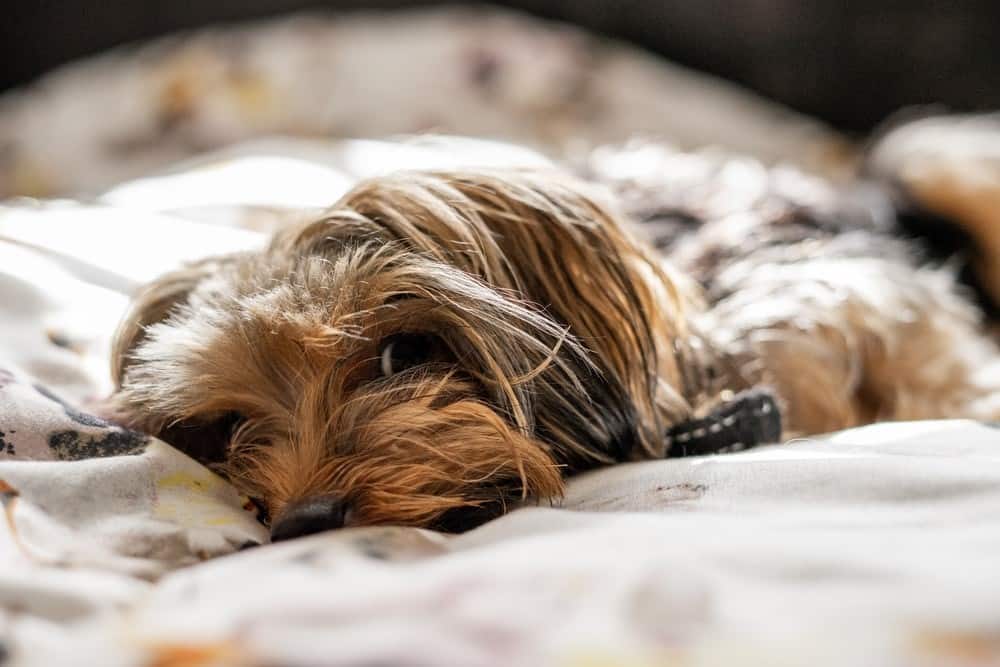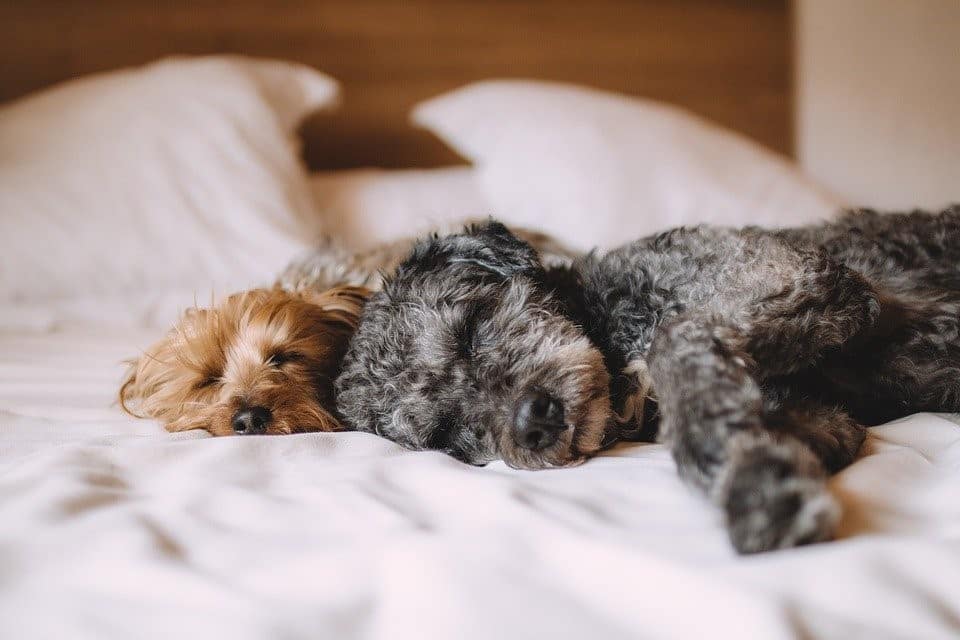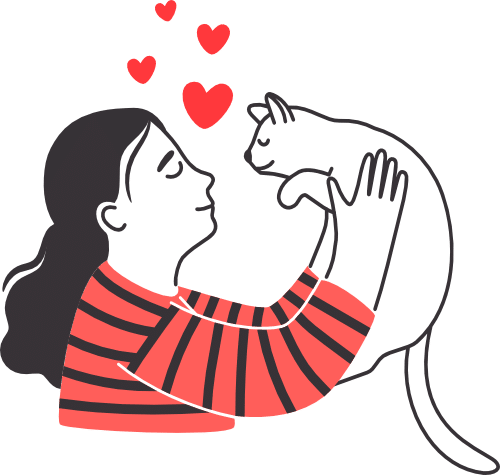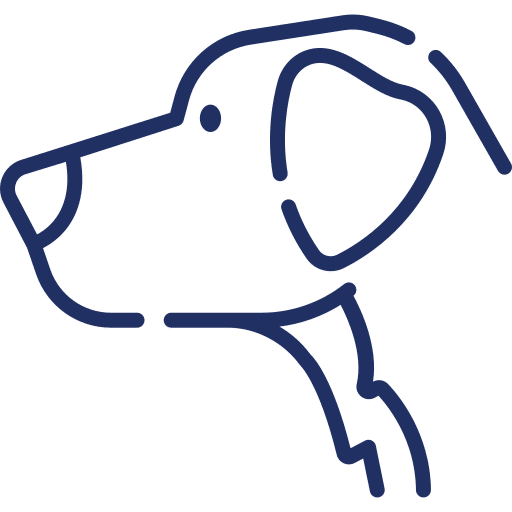

Why Is My Dog Not Eating – Causes and Solutions
As a dog owner, you must have experienced a situation where your pet don't eat properly. So, it is important to monitor your dog’s food intake with caution so that diagnosing a problem can become easier.Here, we have prepared a detailed guide of major reasons and easy solutions ; so let’s get started!
As a dog owner, you must have experienced a situation where there was a remarkable change in your pup’s appetite, and it didn’t want to eat properly. While a temporary loss of appetite in dogs isn’t necessarily something to worry about as stress can cause them to lose interest in food, a prolonged loss of appetite in dogs, on the other hand, can be a serious symptom of some sort of underlying illness or other medical issues.
For this purpose, it is important to monitor your dog’s food intake with caution so that diagnosing a problem can become easier, and you can immediately take it to the vet as soon as you notice a significant change in its eating habits. Here, we have prepared a detailed guide to some of the major reasons why your dog isn’t eating and easy solutions to those problems; so let’s get started!
CAUSES OF LOSS OF APPETITE IN DOGS
Medication or Vaccinations
With the ever-evolving healthcare industry, today, there is a wide range of medications and vaccines available for pets in the market. However, some of these drugs often come with unpleasant side effects. Certain medicines can cause your dog to lose its appetite. While such adverse reactions are usually temporary, it is important to stay wary of this factor.
A New Environment
If you are on vacation or have recently moved to a new location, your little pup might find it a bit difficult to cope with the new surroundings. The uneasiness and nervousness can result in your pup not eating as it comes to terms with its new home.
Quality of Food
When buying dog food, make sure you prioritize quality. Less protein and flavor can make any type of food unappetizing for your fur baby. Therefore, make sure to feed your pet high-quality, nutritious, and fresh food at all times!
An Upset Stomach
When dogs consume something that they shouldn’t have, gastrointestinal issues are likely to occur and can take some time to resolve. Even if your dog is well-trained, it can be tempted to gobble up bugs, trash, and other harmful but seemingly delicious objects. This can result in severe stomach ache, vomiting, and sometimes even diarrhea. The feeling caused in your dog’s stomach due to these issues can make it avoid food.

Dental Problems
Since dogs cannot express pain with ease, dental issues often go unnoticed. Bleeding or swollen gums often indicate more serious underlying health problems. Leaving these issues untreated can cause them to worsen. Diseases such as gingivitis and oral tumors can cause a lot of pain when eating food, especially dry kibble.
Boredom
While this may come as a surprise to many pet owners, your dog can get bored with the food it gets to consume! Therefore, it is recommended to add something extra such as a topping of wet pet food or some gravy and mix things up for your canine partner.
Medical Issues
If your dog experiences a loss of appetite for a significant amount of time, it may be because of a serious illness such as organ failure, cancer, or other infections. Therefore, it is always a good idea to take your pet to the vet for regular checkups.
Overfeeding
While treats are a great way of showing dogs some extra love and rewarding them, doing so every time your dog flashes its lovable eyes at you can lead to overfeeding. Treats should be supplied evenly throughout the day to make sure that it doesn’t affect your pet’s appetite.
SOLUTIONS FOR LOSS OF APPETITE IN DOGS

Since there can be a wide array of reasons why your dog has stopped eating, it can be quite difficult to take the relevant action in order to fix the problem. Here are some general measures that you can take to ensure that your dog remains happy and healthy at all times!
Monitor Your Dog’s Behavior
When your dog skips its first meal, make sure to monitor your dog’s behavior towards its food. Make sure that your dog’s daily activities line up with what it usually participates in every day. If you notice any changes, take note. Also, make sure to monitor your canine pet’s water intake and stool. Anything unfamiliar can be a cause for concern.
Regularly Check Your Surroundings
Along with monitoring your dog’s behavior and routine habits, keep a check on your surroundings too. This will help you pinpoint the exact reason why your precious pet isn’t eating.
Get a Medical Checkup
The best way to diagnose an underlying problem is to have a thorough physical examination performed on your pet by a professional vet. You can also check their fur for harmful parasites. Furthermore, you can also press your pup’s belly to check for any unusual hard lumps and look for signs of vomit or diarrhea in your dog’s fur.
Examine Your Dog’s Teeth
Once you are done checking your pup’s body, have them open their mouth wide open for a dental examination. Look for obvious symptoms of dental issues such as bleeding, swollen gums, or loose teeth. An influx of mucous or discoloration on the gums can also be signs of dental issues and need immediate medical attention.
Make Sure Your Dog Food Is Fresh
Regardless of whether your dog has medical issues or not, it is always recommended to properly check the dog food prior to feeding it to your fur child. Make sure that the food isn’t stale, smelly, or moldy. Furthermore, it is important to check the ingredients of the food properly to make sure that your pet doesn’t experience any allergic reactions.
Bottom Line
Whether you are a first-time dog parent or have had pets for years, witnessing your dog stop eating food can be quite distressing. Remember that there can be a variety of reasons for loss of appetite in canine animals. It is crucial that you determine the cause in order to come up with the best possible treatment plan. While your pup is most likely to survive without food for a few days, it is best to address its appetite issues as early as possible!
Discover how to create a joyful, healthy home for your pet.
Subscribe to your weekly rundown of practice, real life ideas and training tips straight to your inbox.


